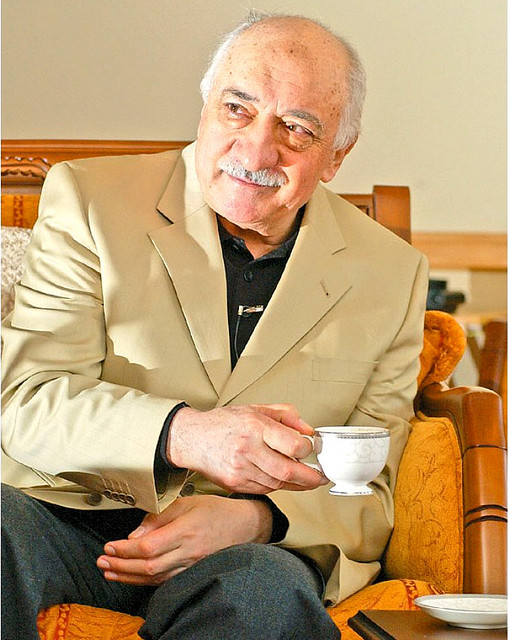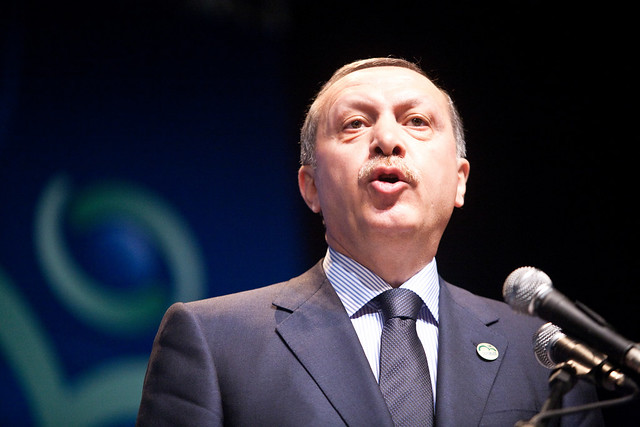By Mohammad Behzad Fatmi for TwoCircles.net,
The Turkish politics has historically remained turbulent. Until a couple of years back it was known for continuous friction between self-proclaimed guarantor of secular Turkey established by Mustafa Kemal Ataturk (Turkey’s military) and any force considered against that structure of the state. This time again Turkey has raised eyebrows in the international political arena due to another conflict, though not between traditional foes but between commonly perceived allies.
Turkey has witnessed two very significant events in the year 2013 which drew considerable global media attention. The unfolding of events has been so unprecedented that it left many by surprise. First were the mass demonstrations in the summer of 2013 against the ruling Justice and Development Party (AKP) and the Prime Minister Recep Tayyip Erdogan. The scale of protests was unexpectedly large and such an opposition to Erdogan’s rule was never seen before during his more than a decade in power. Second is the ongoing graft probe which has implicated four ministers in Erdogan’s Cabinet and some businessmen close to him. The probe has infuriated Erdogan and he blamed sympathisers of a social movement led by Islamic scholar Fetehullah Gulen in judiciary and police for instigating the probe and deliberately targeting his inner circle. This event is unprecedented because of the parties involved in the conflict, i.e. government of Erdogan and Gulen movement.

Fetehullah Gulen
Now looking into the details of both of these events and the developments between these two in a timeline manner, we not only find some similarities and uniformity in ruling party’s attitude but also some very shocking political outbursts which were totally unanticipated.
The May 30, 2013 police crackdown on peaceful protesters in Istanbul’s Gezi Park sparked mass anti-government demonstrations across the country. A sit-in protest by a small group of environmentalists opposing uprooting of trees in a park in central Istanbul escalated into nationwide protests against the ruling party. There was a loud and direct demand from the protesters for Prime Minister Recep Tayyip Erdogan to resign as many believed he was becoming increasingly authoritarian. Those protesters also accused Erdogan of meddling into private lives and trying to impose conservative Islamic values on secular and modern Turkey founded by Mustafa Kemal Ataturk.
Notably, Fetehullan Gulen, a self-exiled Turkish Islamic scholar was among despised people by the Gezi Park protesters. The Erdogan’s government and a faith based movement led by Gulen, popularly known as Hizmet (pronounced in Urdu as Khidmat), were charged by protesters for trying to tamper with secularism in Turkey.
The government of Erdogan was quick in terming the protests as an ‘international plot’ aimed at halting Turkey’s robust economic growth and increasing dominance in the region. On the pretext of countering an alleged ‘international plot’, Erdogan justified consecutive harsh police crackdowns on protesters during the period and also spoke of those policemen as ‘national heroes’. The public prosecutors also gained Erdogan’s words-of-praise for their efforts in bringing ‘perpetrators to justice’. Analysts see those protests as a major confrontation in 2013 between secular and ultra-nationalist opponents and religiously conservative ruling party and its allies. However, as many other demonstrations, this one too started and gradually disappeared. The government moved on!
On August 5, 2013 an Istanbul court sentenced ex-army chief, Gen. Ilker Basbug, to life imprisonment along with many others on charges of conspiring to overthrow the Justice and Development Party’s government. The court’s ruling came five years after the initiation of the so-called Ergenekon trials prosecuting a number of officers, businessmen, writers, journalists, politicians and academicians. The verdict was seen as total neutralisation of military dominance in civilian matters of the country and dwindling power of Kemalist forces that have historically resisted presence of any ideology other than their own in public life. Prime Minister Recep Tayyip Erdogan, in this case too, was highly appreciative of public prosecutors and the judiciary for taming forces that allegedly possessed threat of military coup against his government.
In the month of November, to the surprise of many, the Erdogan administration provoked a crisis with the Gulen movement by announcing it would shut down university preparation schools (dershane) in the country, many of which are run by members of the movement (Hizmet). The government, however, later clarified it is not targeting the movement but just want these schools to transform and attain full-fledged private school status and only those who fail to do so will face shut down. Nevertheless, the movement not ready to give any concession on this matter, strongly criticized the government’s decision and raised serious doubts over its intentions.
The very next month, on December 17, police raided some targeted locations in Istanbul and Ankara simultaneously and arrested sons of a few Cabinet ministers and some businessmen close to the ruling Justice and Development Party (AKP) on charges of corruption and related wrongdoings. Under heavy pressure from the opposition, the government had to reshuffle the Cabinet and ask ministers whose sons were detained to resign. This raid shook Erdogan’s administration and came as a huge embarrassment for the ruling party as they have come to power on high moral grounds of being a party of integrity and probity.
Furiously reacting to the probe, Prime Minister Erdogan held the Gulen movement responsible for instigating the probe and lashed out at its alleged sympathisers in judiciary and police departments for acting to denigrate his government. It is believed that the Gulen movement has a strong base of sympathisers in judicial bodies and police departments of Turkey. The government purged hundreds of policemen including police chiefs of Ankara and Istanbul and also relieved number of public prosecutors of their duties. Erdogan even accused Gulen movement for acting as local moderator of an ‘international plot’ against his government.
It is to be noted that it was the same prime minister who months ago during Gezi Park protests praised police departments of different cities headed by the same police chiefs against whom he is taking punitive actions now. During those protests he had lauded policemen as ‘national heroes’ and now those ‘heroes’ are being suspended or transferred on his orders.
In addition, the landmark verdict of Ergenekon trials in the month of August has heralded Erdogan’s victory over his long-time traditional foes. Public prosecutors have apparently played an important role throughout the trials which eventually culminated in Erdogan’s favour besides their ‘commendable’ actions during Gezi Park protests. Surprisingly, over this graft probe Erdogan’s administration is at odds with the public prosecutors only.

Recep Tayyip Erdogan
Interestingly, Prime Minister Recep Tayyip Erdogan is consistent in blaming ‘foreign powers’ for both the unrest that has significantly brought a bad name to his government, i.e. Gezi Park protests and graft probe. What has changed at the latest controversy is the group that has been accused by the prime minister for acting in the interests of ‘foreign powers’ and against his government. During the Gezi Park protests it was ultra-nationalist and Kemalist forces and this time over graft probe it is the faith based movement led by Fetehullah Gulen.
Ironically, the Gulen movement which is facing brunt of government’s ire over the graft probe was earlier accused by Gezi Park protesters for working with Erdogan’s administration in allegedly eroding the fundamentals of Ataturk’s Turkey. For Gezi Park protesters Erdogan’s government and Gulen movement were close allies who used their power to increase influence of religion in the state machineries of traditionally secular Turkey. However, the Gulen movement has emphatically denied any alliance with the Justice and Development Party based on political ambitions. In a recent interview with the Wall Street Journal Fetehullan Gulen said, “If we can talk about an alliance, it was around shared values of democracy, universal human rights and freedoms — never for political parties or candidates”.
It is for the unbiased and impartial judicial bodies of the country to decide whether the corruptions charges against the government are true or the allegations made by the government against the Gulen movement has any base. But this development in Turkish politics is of particular importance which can be decisive in the future political outcomes as it has pitted two former ‘ideology based allies’ against each other.
—
Behzad is an Indian freelance writer currently based in Konya, Turkey

